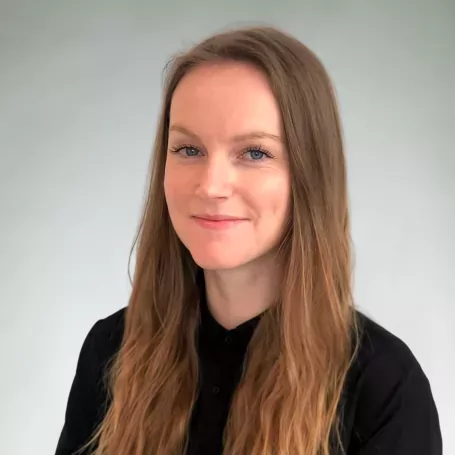- within Transport and Insurance topic(s)
- with Senior Company Executives, HR and Inhouse Counsel
- with readers working within the Accounting & Consultancy and Insurance industries
The Minister of Fisheries, Oceans and the Canadian Coast Guard (the "Minister") announced on December 17, 2020 that Fisheries and Oceans Canada ("DFO") will begin phasing out existing salmon farms in the Discovery Islands area.
The Minister announced that:
- the upcoming 18-month period will be the last time that the Discovery Islands area is licensed for salmon aquaculture;
- no new fish of any size may be introduced into Discovery Islands facilities during this period; and
- existing fish at the farms will be allowed to complete their growth-cycle and be harvested, but all farms must be free of fish by June 30, 2022.
This means that based on current production, 80% of the farmed fish should be removed by the end of April 2021. Further, DFO announced that it will be implementing First Nations' monitoring, auditing and inspecting of fish farms during the remaining production cycle as well as during the decommissioning of the 19 farms.
This announcement follows a DFO consultation with Homalco, Klahoose, Komoks, Kwiakah, Tla'amin, We Wai Kai (Cape Mudge) and Wei Wai Kum (Campbell River) First Nations over 19 fish farms in their territories - particularly on whether to renew aquaculture licences for the 19 farms. In 2019, Prime Minister Justin Trudeau issued a mandate to the Minister, requiring that all open-net fish farms in B.C. transition to close-net containment and that open-net fish farms be out of the ocean by 2025. Given that aquaculture licences for marine finfish can be issued for up to six years, many First Nations as well as other stakeholders were concerned that if DFO continued to issue six-year licences, the Prime Minister's mandate would be thwarted. This announcement, however, indicates a commitment by the Minister to uphold that mandate.
MLT Aikins was pleased to advise the Homalco, Klahoose and Tla'amin First Nations in these consultations.
Response to Cohen Commission Recommendation
Atlantic salmon fish farms and their impact on wild Pacific salmon and other marine life, in addition to DFO's mis-management of the aquaculture industry, have long been contentious issues in B.C. In 2012, Justice Cohen released the results of an inquiry into the decline of Fraser River sockeye following a then record-low return of 1.4 to 1.6 million sockeye to the Fraser River in 2009. As part of his report, Justice Cohen made recommendations for the protection and conservation of Fraser River sockeye, one of which was that, by September 30, 2020, the Minister should "prohibit net-pen salmon farming in the Discovery Islands...unless [those] farms pose at most a minimal risk of serious harm to the health of migrating Fraser River sockeye salmon."
The Minister's December 17, 2020 announcement was a direct response to Justice Cohen's recommendation.
A Win for Wild Pacific Salmon
This announcement is welcome news to all those concerned with the health of wild salmon in B.C., especially those First Nations who have seen pathogens and parasites (such as sea lice) from fish farms decimate the wild Pacific salmon they rely on to exercise their constitutionally protected right to fish for food, social and ceremonial ("FSC") purposes.
For two consecutive years, Fraser River sockeye have experienced historically low returns: in 2020 the Pacific Salmon Commission initially forecasted a return of 941,000 sockeye to the Fraser River but by August lowered that number to just 283,000 fish - the lowest return in history. Not only are these direly low returns threatening to sterilize the constitutional rights of Indigenous nations, they are also harbingers of a total collapse of wild salmon stocks.
The management of aquaculture in B.C. and efforts to protect and conserve wild fish need a drastic change of course if B.C.'s Pacific salmon populations are to be pulled back from the brink of extinction. We hope that the Minister's December 17, 2020 announcement is an indication that moving forward, DFO's management of aquaculture will reflect its core mandate to protect wild fish and honour its constitutional obligations to First Nations.
An Opportunity for UNDRIP?
On June 27, 2018, the three First Nations and British Columbia agreed that they would use a consent-based government-to-government process consistent with the United Nations Declaration on the Rights of Indigenous Peoples ("UNDRIP") to govern the renewal of the tenures for the 17 fish farms. That agreement led to the orderly transition of fish farms from the Broughton Archipelago, an area just north of the Discovery Islands.
More recently, Terry Beech, Parliamentary Secretary to the Minister, has been mandated to lead the transition to closed containment fish farming in B.C. The transition provides the federal government the opportunity to replicate the Province of British Columbia's success in implementing UNDRIP in a similar context.
Fish Farming's Turbulent History in B.C.
First Nations and other stakeholders have repeatedly challenged DFO's assessment of risk that fish farms pose to wild salmon stocks in B.C. and on three occasions the Federal Court has found fault with DFO's decision-making with respect to its management of the aquaculture industry in B.C.:
- in 2015, the Federal Court quashed the Minister's policy to allow salmon infected with the Piscine orthoreovirus ("PRV") into fish farms, finding the Minister unlawfully delegated decision-making powers to industry licensees and failed to adhere to the precautionary principle;
- in 2019, the Federal Court again quashed the Minister's PRV policy, finding that it failed to uphold the Minister's core mandate to protect and conserve wild fish, did not adhere to the precautionary principle, failed to consider the risk to wild salmon and breached the Crown's constitutional duty to consult 'Namgis First Nation; and
- in 2020, the Federal Court of Appeal found that DFO breached the duty to consult on the approval of the transfer of farmed salmon smolts to an open-net pen due to its failure to consult 'Namgis on the overall PRV policy.
Finally, on September 22, 2020, one week before Justice Cohen's recommended deadline, an unprecedented coalition of First Nations, commercial fishers, sport fishers, wilderness tourism organizations and environmental non-governmental organizations, with the support of 25 members of Parliament, called on DFO to remove open-net fish farms from B.C.
After years of such demands being ignored and multiple court challenges, it appears as though DFO is finally taking note of what First Nations and other stakeholders have been saying for years: fish farms pose much more than a minimal risk to the health and survival of B.C.'s wild salmon populations and pathogens from open-net farms are contributing to the demise of wild Pacific salmon.
The content of this article is intended to provide a general guide to the subject matter. Specialist advice should be sought about your specific circumstances.



